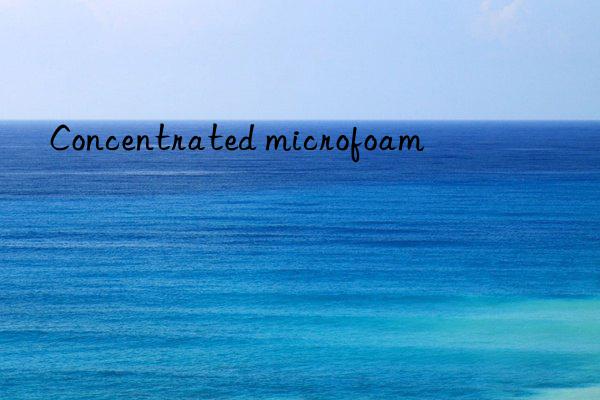
1. Product dosage:
The concentrated microfoam agent in the mixed mortar or plastering sand is always 0.0005-0.00125% of the weight of the cementing material (cement or lime). Each kilogram of this agent can replace 5-10 tons of ash.
2. Dilution method of concentrated microfoam: 1 kilogram of the original solution of concentrated microfoam is placed in 99 kilograms of hot water above 70°C in winter. In summer, use cold water and stir vigorously for about one minute. A milky white microfoam aqueous solution with a concentration of 1% is obtained.
3. Preparation of concentrated microfoaming agent mortar:
Pour the clean water required for each plate of mortar (10-20% less water than without microfoaming agent) Put it into the mixer, then add the microfoam aqueous solution required for each plate of mortar, and stir vigorously for about 1 minute, then add cement and sand. The total mixing time is 3-5 minutes, and the mixture can be poured out after stirring evenly.
IV. Precautions
1. When preparing the microfoam aqueous solution, the water temperature in winter should not be lower than 70°C, otherwise it will not be fully dissolved and will precipitate in purple form.
2. For ultra-fine sand, the dosage of this agent should be doubled. The microfoam agent should be used in conjunction with antifreeze at negative temperatures. Construction of masonry in winter is basically the same as construction at normal temperature.
3. Microfoam mortar uses 10-15% less water than ordinary mortar and still has good workability.
4. Dilute this agent to avoid contact with oil. It should not exceed half a month after dilution, preferably 7-10 days.
5. This agent is suitable for mechanical mixing, and the workability of hand-mixed mortar is poor.
6. The initial setting time of the mortar mixed with this agent is faster than that of the general mixed mortar. The tiny bubbles in the microfoam agent mortar generally remain for 4-6 hours. The mixed mortar should not be left for too long. It should be used up in 4 hours at room temperature and 2 hours when the temperature exceeds 30℃.
Practical mix ratio reference table:
Cement weight | Amount | Original solution | 1% aqueous solution |
0.5 bags=25kg 1 bag=50kg 2 bags=100kg | 0.5/million | 1.25g 1.5g 5g | 125g=0.125kg 250g=0.25kg 500g=0.5kg p> |
0.5 bags=25kg 1 bag=50kg 2 bags=100kg | 0.75/million | 1.88g 3.7g 7.00g | 188g=0.188kg 375g=0.375kg 750 grams=0.75kg |
0.5 bags=25kg 1 bag=50kg 2 bags=100kg | 1/万 | 2.00g 5.00g 10g | 250 grams=0.25kg 5000 grams=0.5kg 1000 grams=1kg |
| 0.5 bags=25kg 1 bag=50kg 2 bags=100kg | 1.25/million | 3.13g 6.2g 12g | 313g=0.313kg 625g=0.625kg 1250g=1025kg |
0.5bag= 25kg 1 bag=50kg 2 bags=100kg | 1.5/million | 3.7 grams 7.5 grams 15 grams | 375 grams=0.375kg 750 grams=0.750kg 1500 grams=1.50kg |
</p



 微信扫一扫打赏
微信扫一扫打赏
